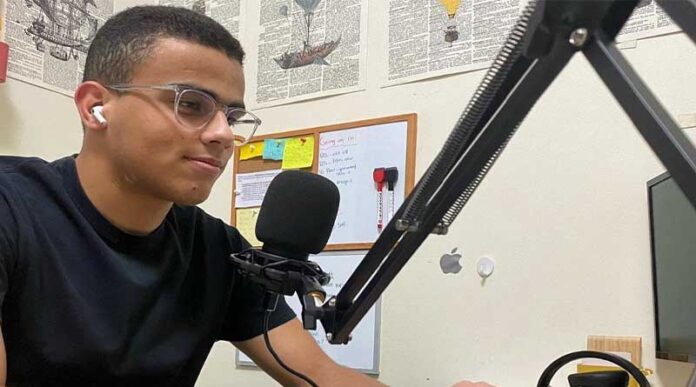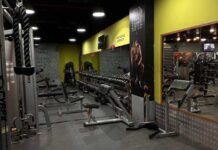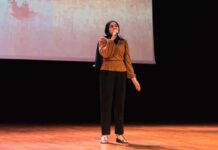By Malika Kaloo
Ali Mortada is the founder and host of the “Up Next” podcast. He is an alumnus of the American University of Sharjah and graduated in the Spring of 2022. Mortada is currently working as a junior associate at Boston Consulting Group.
What inspired you to start your podcast Up Next?
To be honest, it was people at AUS. So I was seeing a lot of cool people at AUS, people from my batch, people from the batches above that were doing very cool projects. So some were entrepreneurs, some were designers, and they were doing a lot of these cool ventures. And I wanted to sort of support them by doing more than just putting their posts on my Instagram story. I always had a love for public speaking and always wanted to sort of have a platform of my own. So I saw it as the perfect opportunity to get two birds with one stone and be able to build a platform for myself and use it to help increase the outreach of these cool people doing cool things within the youth community.
Tell us something about your first episode. How was the experience?
It was a bit of a nerve-wracking experience. I sort of didn’t know what I was supposed to do until I started because usually I can carry on a conversation quite well, but I never recorded it. Also, I never did it with someone that I just literally met as soon as we started recording. So at the start, I was a bit nervous. I was a bit worried. Should I be formal? Should I be informal? Should I follow exactly what I prepared? Should I be more impromptu? So it was not very natural at the start. Then it just became a normal conversation, and I absolutely loved it. I lost track of time. It ended up being, like, around an hour, and I was aiming to keep it 30 minutes. It was just because it was a great experience, great conversation and the guest was amazing. It was Omar Ghanem. He was also an AUSer. He co-founded U-Light. It’s a very cool social start-up. It was a joy to speak to him and get to know his entire story.
So, what are some of the key topics that you focus on in your podcast?
A lot of the things that I focus on is building sort of a side hustle because a lot of the guests that I speak to are quite young and are still at an early stage of whatever they’re doing, whether it’s having a start-up, having an online presence, an online brand and so on and so forth. So a lot of it are people that still aren’t at a position where they can scale it into a full-time position. So a lot of it is how do you manage to do it with uni or with your job. Also, one of the popular topics that I like to talk about is mental health. It came up more than once. It came up almost with every guest. And this just shows the importance. So that is a topic that without even planning to talk about, it always pops up. I also talk about the mistakes that people made throughout the journey. Something that I believe that the listeners who want to do something similar can learn a lot from.
How many episodes have you recorded so far and what has been your most memorable episode?
I think it might be 68 episodes. I wouldn’t like to pick favorites, but to be honest, there is an episode that was very enjoyable. The episode was very touching. The person’s story was incredible, and it was just one of the best conversations I’ve ever had in my life. So it is a clear winner, to be honest. For me, it was Shebani. She is an incredible musician here in Dubai. We talked about her story, her passion for music, her fighting to reach the position that she’s in right now. It was just an amazing episode, an amazing conversation. It’s one of these episodes that I saw the timer run on to reach like an hour, an hour and a half and I just didn’t care. It was an incredible conversation. I wanted to capture every last second of her story.
Is there any particular person that you would like to interview in the future?
I like Anas Bhukash a lot. I’ve met him a few times. I think he’s very interesting. He has the show “AB Talks.” It’s a bit cliche, but he always likes to ask people, so I want to flip the order and ask him.
What are some of the biggest challenges that you’ve faced so far while producing your podcast?
A lot of it, to be honest, is finding the time. So I started this in COVID in 2020. I think I was a junior or sophomore two in Uni. So I did have more time than I do now as I work a very demanding job, I do consulting. So now it is hard to find the time. I still really do try to carve it out every now and then. It’s not that it’s impossible, it’s very possible, but it requires sacrifices. I’d say that, to me, consistency with the podcast was a very poor thing. While in Uni, I still managed to maintain that. Unfortunately, now it’s slopping up a bit, but I’m working on building it back.
But there are so many podcasts out there these days. Do you think this competition makes you nervous?
I don’t think it’s a competition. Competition would be if a listener would listen to either my podcast or another podcast. I don’t even think it’s the case. People listen to music or have headphones in their ears 24/7. So definitely he has the time. I don’t do it, to be honest, so I could be better than someone else. I never made a penny off of it. The podcast is usually in the charts in the top 100, and I couldn’t care less. I just do the podcast because I enjoy the conversations with the people. I love the value that it brings to me and I love the fact that I help these people tell their stories and benefit other people. So I don’t really care about competition.
How has your audience responded to your podcasts?
I think people resonate with it. I don’t think it’s anything crazy or anything revolutionary. It’s just two people having a conversation. It just happens that there is a mic there and then someone is pressing the upload on Spotify. I think people find it relatable. A lot of the people that I bring on, they’re within the same age bracket, similar stages of life, either at the end of the year or early on in their careers. They have a lot of similar experiences and are living similar things to that of my listeners. What they say resonates with them is the advice actually, very time-sensitive and hits and just brings the most value.
What do you want your listeners to take away from your podcast?
I think in a way it depends on the episode because when you have a different person every episode, you have a different message every episode. But the overarching things would be that: If this person is doing it, I can do it. And here they are telling you how they did it, the challenges they faced, the stages they made. So you know you can do it too. You will face challenges. It will be very tough but there are other people that you can reach out to and get help from and get guidance from, similar to these people that you were listening to on the podcast. Also, it’s something about me that I like to convey a lot throughout the podcast. It’s just me trying to help out people. If there’s someone that you can give a platform to or bring on their journey, do it.
Who’s your inspiration in the world of podcasting or which is your favorite podcast?
Very good question. I actually don’t listen to podcasts as much as I should listen. I do listen, but some podcasts I just find to be a bit too long. I also mostly go on podcasts by topic rather than following one show and just listening to everything they upload. But I would say consistently, I listen to AB Talks. I like the topics that Anas speaks about. I like the guests that he brings on. I love how diverse and different they are in terms of their background and the stories they have to tell. I love the level of depth that he gets into. It’s not a shallow conversation. It’s not like, “How did you get there? You’re so great. Oh, my God. That’s amazing.” The fact that almost every guest walks off in tears, it’s just in my mind that great sign that there was a great conversation.
What is one thing that you’ve learned from podcasting?
There are many, but I think the thing that definitely stands out for me is how important it is to listen to other people’s stories. The amount of sheer value that just comes from listening to someone’s story, no matter how basic or crazy it is. It’s just incredible because people are so much more different than you think, so diverse, and everyone is like a gigantic encyclopedia with thousands and thousands of pages. And if you try to assume something about someone or bucket them under a stereotype, you’re wrong. And once you listen to the person and hear their story, you just learn so much from it and gain so much value and perspective from it.
Do you think it has played a role in your professional goals and aspirations?
I think every business, every role that you work in, is a people business. Where there are people, there is people business. It definitely helped me a lot to be able to very naturally have a conversation with someone that I just met because literally 70% of the guests, I’ve never spoken to or heard their voices before I talk to them on the podcast. It just helps you click on with people. It makes you super confident when you’re talking. When you’re presenting in a formal setting, when you’re just networking or talking, it helps a lot. It just definitely builds your people skills and your communication skills.
Would you like to take podcasting as a full-time career?
Maybe not podcasting, but something similar. Something definitely to do with presenting or hosting, but not necessarily just podcasting. For sure, I would love to do podcasting on a much bigger scale, but I wouldn’t say it would be the end goal to just have a really big podcast. I would say I want to use it, keep it, and do more as well other than just podcasting.
So where do you see Up Next in five years from now?
I want to do a show where it’s not just audio. I want to do a video, and I also want to do something live. I want to do sort of live shows as well. I want to have my own mini festival where I bring on all of the guests that I had in the ventures. So some of them are artists, some of them have clothing brands, some have designs that they sell, and some have businesses that they can come and sort of advertise and sell their products. You have all these people that can put on a show, they can come on and perform it. I think it would be a very cool idea. And, I really do hope I manage it in the next couple of years because it just is incredible to bring everyone together and offer what they have to everyone that was willing to attend the festival and pay the undetermined entry fee.
What advice would you like to give to someone who wants to start their podcast but they don’t know where to start?
So, I would sound very cliche. First of all, if there is a question of you don’t know where to start, you’ll never know where to start. Never until you start. So you might have all these ideas of where you want to go, what you want to do, or like, oh, I know I need to brainstorm with this and brainstorm with that and prepare this and that before I start. But of course, you need to do some level of preparation but it’s almost always that you learn how to get out of the water once you jump in. So you have to try. You have to actually start. You can’t be amazing at editing episodes before you have episodes recorded with people and you mess up. And then you need to edit something or send the file to someone to edit it for you. You need to try. You need to make mistakes and learn from them. You need to try and face the challenges and ask the right people about how to face them or just try and edit your way through them. There is no one way to start or one place you need to be at to start. You just have to start. Then all of the puzzle pieces will start coming together. But without you initiating this process, nothing will happen.


















